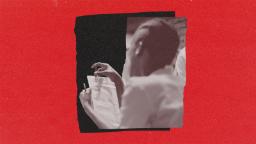[ad_1]

She had no concept that the 19-year-old had begun exchanging intercourse for money so as to assist pay for meals for her three youthful siblings and two cousins, who reside collectively in a one-room home in a waterfront slum group in Mombasa, Kenya. When Bella got here house with rice and different components for dinner on the finish of the day, she did not clarify how she had purchased them.
“The pandemic broke down the financial system, particularly for my space. So I needed to assist in a method or one other with bills,” mentioned Bella over WhatsApp. The teenager requested that her identify be modified to guard her id.
Earlier than the pandemic, Bella was a sophomore at a highschool within the metropolis, the place she was an avid historical past pupil and loved taking part in desk tennis with associates throughout breaks between courses. However in March, as Covid-19 unfold, Kenya shut down and so did the colleges.
Unable to proceed her research remotely resulting from a scarcity of electrical energy and web entry, and along with her mom’s earnings from promoting greens on the road slashed, Bella started washing garments to assist complement the household’s earnings.
When one in all her prospects who was a lot older pressured her for intercourse, saying he would pay 1,000 Kenyan shillings ($9) or 1,500 shillings ($13) for unprotected intercourse — triple what he was paying her for doing his laundry — she felt like she could not say no. After he came upon she was pregnant, he disappeared.
“The pandemic performed the largest function in me getting this being pregnant proper now, as a result of if the pandemic was not right here, I might have been in class. Like this washing garments, and all that stuff, assembly that man, it would not have occurred,” mentioned Bella, who’s presently receiving social assist and money transfers via ActionAid, a world marketing campaign group. She dietary supplements this with odd jobs and laundry work.
Now three months pregnant, Bella mentioned she will not be capable of resume her schooling when Kenya’s colleges absolutely reopen in January — a buddy of her mom’s, who had been serving to to pay her charges, withdrew her assist.
For a lot of women, faculty will not be solely a spot of studying and a pathway to a brighter future, Gianni provides, it is also a lifeline — providing important vitamin companies, menstrual hygiene administration, sexual well being data and social assist.
The repercussions of the Covid-19 pandemic on women may very well be felt for generations.
“With the affect of Covid we’re seeing a really fast and dramatic retreat of the progress we have made on gender equality,” Julia Sánchez, secretary basic of ActionAid, mentioned, spotlight points the place advocates have made strides lately, like in placing a cease to genital mutilation.
“Unexpectedly it is like we have all turned our backs and we’re beginning to stroll in the other way.”
Out of college and going through excessive financial insecurity, lots of the women surveyed mentioned they had been compelled to tackle an even bigger burden of unpaid care and home work, discovered themselves unable to entry life-saving sexual well being and reproductive companies — together with contraception — and had been extra susceptible to gender-based violence.
Reported incidents of violence had been significantly excessive in Kenya (76%), the place younger girls surveyed repeatedly talked about sexual abuse and early pregnancies. Echoing Bella’s story, a number of women and younger girls who had been out of college informed surveyors they had been compelled to alternate intercourse for cash out of economic desperation, ActionAid wrote.
Pissed off advocates say cuts to international support by donor international locations, like the UK, amid a wave of Covid-induced austerity measures may have devastating impacts on women’ schooling and go away them with out the protection internet that faculty affords. They warn that failing to position girls and women on the middle of restoration plans comes at a steep price to financial progress, particularly when confronted with one of many deepest recessions since World Battle II.
“Governments are beneath the squeeze as a result of support goes to be lower, as a result of revenues are happening due to the financial results of Covid, and in addition as a result of there are larger calls for within the well being sector,” Lucia Fry, director of analysis and coverage on the Malala Fund, mentioned. “In some instances, not all, international locations are literally diverting funds away from schooling at the moment of nice want.”
Plenty of advocacy teams are calling on governments to keep up the precedence that they’ve given to schooling, whereas concurrently seeking to the worldwide group to supply fiscal stimulus within the type of debt reduction and emergency support. Long run, they’re taking a look at reforms in issues just like the worldwide tax system in order that international locations can preserve extra of the revenues that they’ve for public companies.
Within the meantime, youngsters like Bella are having to shift their expectations from a future in class to at least one at house.
“It has been so laborious for me. I lack phrases to elucidate how I really feel,” Bella mentioned.
“Going again to high school will not be potential … and my child’s coming quickly.”
[ad_2]








